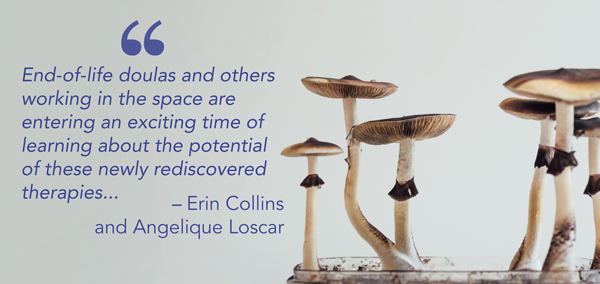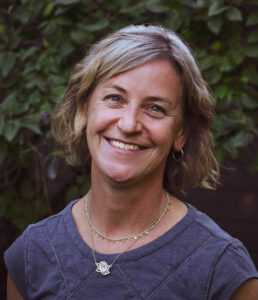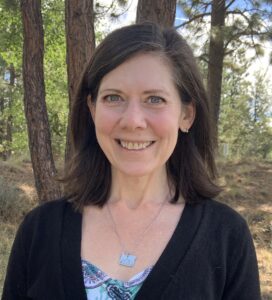Home > Oregon Readies Itself for Psilocybin: A Primer for those in the End-of-Life Space
Oregon Readies Itself for Psilocybin: A Primer for those in the End-of-Life Space
by Erin Collins and Angelique Loscar
In June 2004 researchers at Johns Hopkins University recruited 12 patients with advanced cancer for an unusual study: to see whether a psychedelic drug could help ease anxiety and depression at the end of life.
The results were remarkable—they showed that patients had a statistically significant reduction in anxiety and an improvement in mood. Even more surprising was that after just one session, these effects lasted for months. Since then more studies have confirmed these findings. Many patients have reported having experiences that changed their perception of illness, dying, and death. Some even reported no longer fearing death.
These results suggest that psychedelics, and particularly psilocybin, could become groundbreaking new tools for addressing anxiety and depression at the end of life. In 2023, psilocybin therapy will become legal in Oregon, and we’ll be able to learn more about these effects in a real-world setting.

A Brief History of Psychedelics
Psychedelics are a class of hallucinogenic drugs that affect pathways in the brain related to sensory perception, resulting in altered states of consciousness. Some psychedelic compounds are naturally occurring, like psilocybin (found in mushrooms) and mescaline (found in cacti); others, such as LSD (known colloquially as “acid”), are made in labs.
Psychedelics are not new. They’ve been used by indigenous cultures in religious ceremonies for thousands of years. Rituals involving the use of psilocybin, peyote, mescaline, and other psychedelics by the Mayan, Aztec, and Olmec peoples in Mesoamerica are well documented.
In the 1950s and ’60s, places like Harvard University extensively studied the use of psilocybin and LSD for the treatment of depression, anxiety, and addiction, among other conditions. The results were promising, especially from studies using LSD to treat alcoholism. This experimentation was not purely academic. Psychedelics even became a cultural phenomenon in the late 1950s, with famous people—perhaps most notably movie star Cary Grant—lauding their effects.
However, this burst of research and public acclaim came to an end in 1971. In his book How to Change Your Mind, Michael Pollan discusses the political motives surrounding the reclassification of psychedelics as Schedule 1 drugs—the most restrictive tier—in the Controlled Substances Act. They remain there today.
Nearly four decades passed before researchers picked up the thread and began studying psilocybin again, in the early 2000s. Promising results, like those that appeared in the Johns Hopkins cancer study, led to a flurry of new studies in a wide variety of conditions. The results have shown dramatic benefits, and more and more researchers have begun to study this field. According to clinicaltrials.gov, in the United States today, there are over 40 active studies looking at psilocybin treatment for anxiety and depression, drug addiction, bipolar disorder, obsessive-compulsive disorder, anorexia, migraines, alcoholism, and nicotine dependence.
Currently, the only way to legally access psilocybin for therapeutic purposes in the United States is to enroll in one of these studies. This will change when psilocybin use becomes legal in the state of Oregon, in 2023—the first time in the country’s history that the drug will be legal at the state level. Another way psilocybin could become available to dying patients would be under the Right to Try Act, which is intended to allow patients with advanced illness to access investigational drugs that have passed a Phase I clinical trial.
Legalization in Oregon
In November 2020, Oregon voters approved Ballot Measure 109, which legalized the use of psilocybin (though not LSD or other psychedelics) and created a heavily regulated program for accessing psilocybin services in the state. After a two-year implementation process—during which the rules and regulations for growers, training programs, and service centers are being established—access to psilocybin will become legal on January 1, 2023.
Unlike cannabis, which can be purchased at any one of Oregon’s 700-plus retail stores, psilocybin will be available only through a facilitated session at a licensed service center. The typical experience will consist of a prep session (online or in person) followed by an administration session (in which the drug is given). A follow-up “integration session,” to explore the meaning of the experience, is recommended but not required.
Interestingly, in order to lower barriers to access, no prescription or referral will be needed. Almost anyone over the age of 21 will be able to seek psilocybin treatment at a licensed facility for any reason.
The concept of “set and setting” is important here. The research has repeatedly shown that one’s surroundings when taking psilocybin significantly affect the quality of the experience. For example, many of the studies have not been conducted in sterile hospital settings but rather in rooms with comfy couches, plants, natural lighting, and peaceful music. In the pre-session, facilitators work with clients to determine the desired outcomes and then implement those plans during the administration session.
Addressing Concerns
With every new—or newly rediscovered—treatment, there are, of course, concerns. Safety is one of them. Psilocybin has been used for millennia. And research findings suggest that when it is consumed in the recommended doses and in the right setting, psilocybin is both safe and effective. Side effects in these studies have been mostly short-term nausea and dizziness. We also know that, unlike opioids, psilocybin is not addictive. Yet there’s still a lot that isn’t known about the drug’s effects in large patient populations, especially in those with medically complex histories, in more-frail patients, or in those with underlying psychosis.
Another concern is access, both financially (each service center will set its own rates) and physically. People with advanced illness may be unable to travel to a service center. And within the current law, psilocybin cannot be administered at a person’s home. Efforts are underway to change this, but it’s not clear when or if that will happen.
The Facilitator: A Possible Role for End-of-Life Doulas?
For some doulas, facilitation may feel like a natural extension of the role, since we already provide a calming, supportive, nonjudgmental presence for our clients. A level of trust between the facilitator and the person receiving the treatment is important. Similar to indigenous shamans, who bring a depth of knowledge and experience engendering respect and trust in the use of psilocybin, facilitators will need to build trust with clients.
The training programs in Oregon are just now applying for licensure and will soon begin to accept applications. Some programs may accept only licensed therapists, but others will not have that restriction. By law, facilitators need only to have a high school diploma, be an Oregon resident, complete a licensed training program, and pass an exam administered by the Oregon Health Authority. In fact, some licensed health-care providers are reluctant to get involved. Since psilocybin use remains illegal at the federal level, some are concerned about potential revocation of their DEA licenses, along with other serious ramifications. Fortunately, advocates are seeking to open an alternative route for access through duly enacted state and federal Right to Try laws, which would provide both federal and state safe harbor for psilocybin therapy provided to those with advanced illness.
The training programs will consist of at least 160 hours of instruction, covering topics ranging from the role of plant medicines in wisdom traditions to the pharmacology and neuroscience of how the drug works to core facilitation skills. Fluence and InnerTrek are two programs that are currently accepting pre-applications.
Looking Ahead
Stanislav Grof, a psychologist and pioneering researcher in the field of psychedelics, has likened the value of psychedelics in psychiatry and psychology to what the microscope has done for biology and the telescope for astronomy. End-of-life doulas and others working in the space are entering an exciting time of learning about the potential of these newly rediscovered therapies and how they can best serve clients. As Ballot Measure 109 goes into effect at the beginning of 2023, the implementation will be closely watched by those in other states with similar efforts underway, such as Colorado.
BIOS

Erin Collins, BSN, RN, CHPN, is the co-founder of The Peaceful Presence Project and a
NEDA-proficient end-of-life doula. Erin is a certified hospice and palliative care nurse with 15 years of nursing experience in hospice and adult and pediatric oncology. She trained with INELDA in 2018 and now serves as the vice chair of the National Hospice and Palliative Care Organization’s End-of-Life Doula Advisory Council. Her heart’s work is in end-of-life care.

Angelique Loscar, MBA, is a health-care consultant with over 20 years of experience in biotechnology, academia, and nonprofit foundations. Angelique completed her end-of-life doula training through INELDA. She volunteers with a local hospice program and serves on the board of The Peaceful Presence Project.
Some Additional Resources:
- Oregon Health Authority: Oregon Psilocybin Services
- Emerge Law Group blog
- Psychedelics Today podcast, Episode 307, with Kathryn L. Tucker, JD, special counsel at Emerge Law Group and co-chair of the Psychedelics practice group
- Right to Try Psilocybin advocacy group
- “The psychedelic renaissance and the limitations of a White-dominant medical framework: A call for indigenous and enthnic minority inclusion,” by Jamilah R. George, Timothy I. Michaels, et al., Journal of Psychedelic Studies, 2019
- “Psilocybin produces substantial and sustained decreases in depression and anxiety in patients with life-threatening cancer: A randomized double-blind trial,” by Roland R. Griffiths, Matthew W. Johnson, et al., Journal of Pharmacology, 2016
- “Taking Psychedelics Seriously,” by Ira Byrock, MD, Journal of Palliative Medicine, 2018
- “Policy Statement and Review: Psilocybin Therapy for Emotional Suffering Caused by Terminal Illness,” End of Life Washington, 2020
